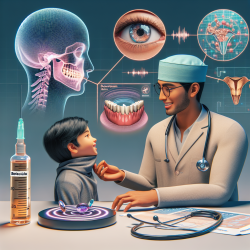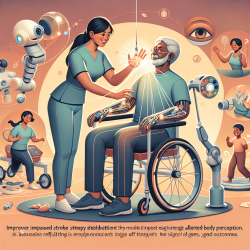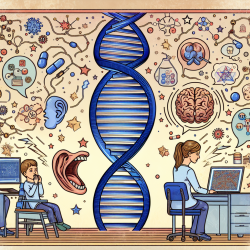As a speech-language pathologist (SLP) passionate about data-driven decisions, it's essential to leverage the latest research to enhance therapy outcomes for children. A recent study titled Examining the Speech Intelligibility of Individuals With Oromandibular Dystonia Receiving Botulinum Toxin: A Series of Cases offers valuable insights that can inform our clinical practice.
Oromandibular dystonia (OMD) is a condition characterized by involuntary contractions of the facial, lingual, and labial muscles, leading to hyperkinetic dysarthria and reduced speech intelligibility. Botulinum toxin A (BoNT-A) injections are the gold standard for managing OMD, but their impact on speech intelligibility has been underexplored.
The study investigated the speech intelligibility of 10 individuals with OMD over a BoNT-A treatment cycle using the Sentence Intelligibility Test and a conversational speech task. Key findings include:
- One participant with lingual OMD showed significant improvements in speech intelligibility.
- The remaining participants exhibited stable speech intelligibility scores.
These results suggest that the type and location of OMD may influence the effectiveness of BoNT-A injections on speech intelligibility. Here are actionable steps for SLPs to enhance their practice based on these findings:
1. Individualized Assessment
Given the varied responses to BoNT-A injections, it's crucial to assess each child's specific type and location of OMD. Tailoring treatment plans to these individual differences can optimize therapy outcomes.
2. Integrate Behavioral Interventions
BoNT-A injections alone may not suffice. Incorporating behavioral interventions such as articulation exercises, breath control, and rate control techniques can complement medical treatments and improve speech intelligibility.
3. Monitor and Adjust
Regularly monitor the child's progress and adjust the treatment plan as needed. This dynamic approach ensures that therapy remains effective and responsive to the child's evolving needs.
In conclusion, leveraging research findings to inform clinical practice can significantly enhance speech therapy outcomes for children. By adopting a personalized, multi-faceted approach, we can help children with OMD achieve better speech intelligibility and overall communication skills.
To read the original research paper, please follow this link: Examining the Speech Intelligibility of Individuals With Oromandibular Dystonia Receiving Botulinum Toxin: A Series of Cases.










